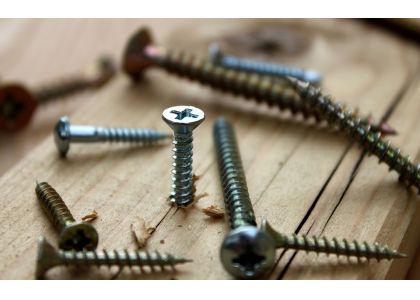Tianjin Goldensea Hardware Products Co., Ltd

1. Carbon steel screws
Carbon steel screws are a commonly used material for screws, and their main components are carbon and iron. The advantages of carbon steel screws are low price, easy production and manufacturing, and they also have strong corrosion resistance. However, carbon steel screws also have their drawbacks. Due to their relatively low material hardness, sharp tools are prone to cutting and deformation, resulting in a shorter service life.
2. Stainless steel screws
Stainless steel screws have good corrosion resistance, a long service life and are not easy to be damaged. In industrial production and usage scenarios, stainless steel screws are a relatively ideal choice. Stainless steel screws are more expensive than carbon steel screws, so when using them, it is necessary to balance the price and performance.
3. Alloy steel screws
Alloy steel screws are refined by adding an appropriate amount of alloy to carbon steel, and their performance is more superior. The tensile strength and hardness of alloy steel screws are both higher than those of ordinary steel, and at the same time, their cost performance is more advantageous than that of stainless steel screws.
When choosing screw materials, it is necessary to comprehensively consider factors such as the usage environment, service life, and strength requirements, and select the most suitable material.